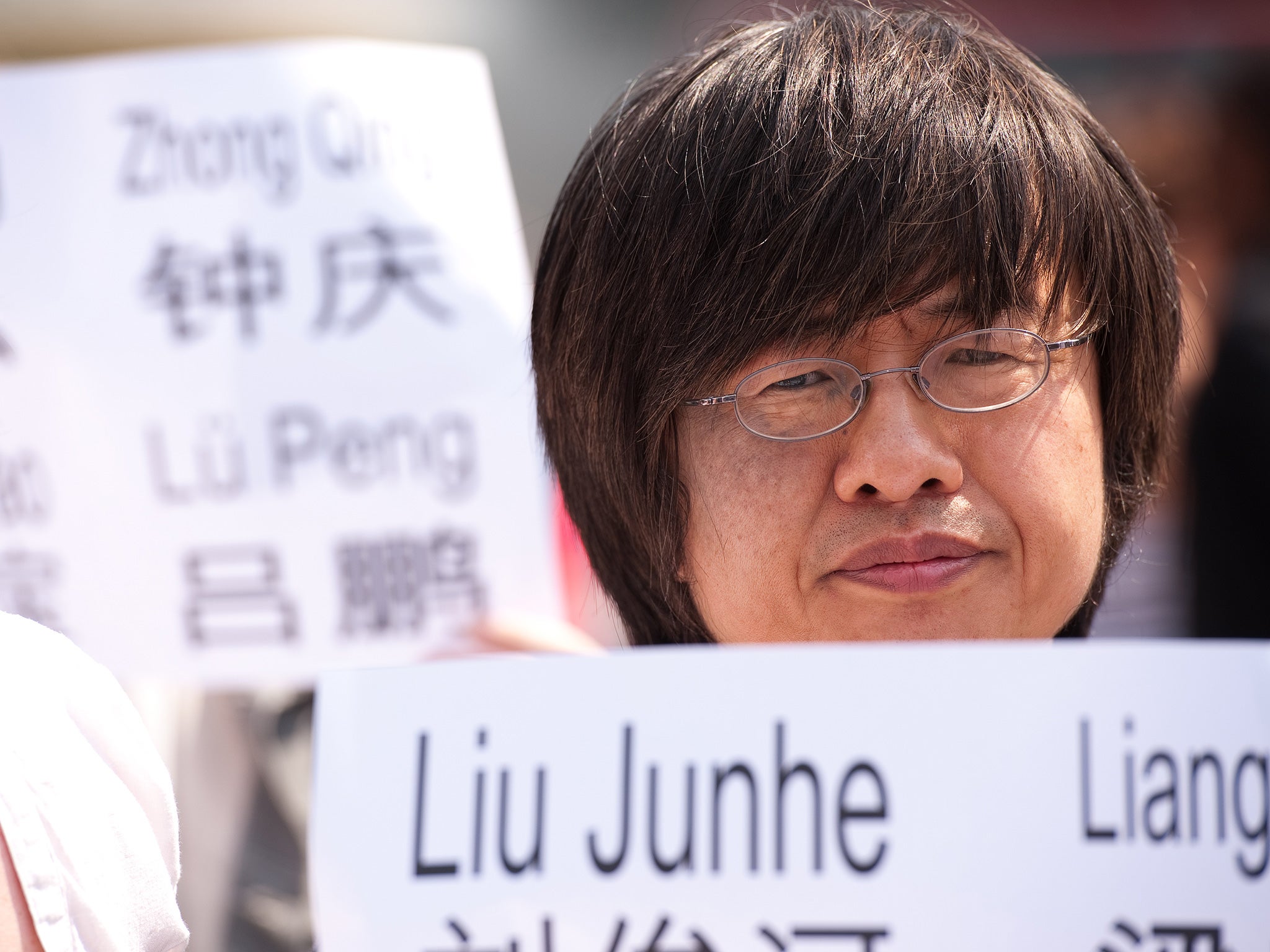Rumours that Met’s decision to arrest Chinese dissident was influenced by Beijing are too grave to ignore
The only way to get China to behave respectfully is to demonstrate self-respect and confidence in one’s own values

Your support helps us to tell the story
From reproductive rights to climate change to Big Tech, The Independent is on the ground when the story is developing. Whether it's investigating the financials of Elon Musk's pro-Trump PAC or producing our latest documentary, 'The A Word', which shines a light on the American women fighting for reproductive rights, we know how important it is to parse out the facts from the messaging.
At such a critical moment in US history, we need reporters on the ground. Your donation allows us to keep sending journalists to speak to both sides of the story.
The Independent is trusted by Americans across the entire political spectrum. And unlike many other quality news outlets, we choose not to lock Americans out of our reporting and analysis with paywalls. We believe quality journalism should be available to everyone, paid for by those who can afford it.
Your support makes all the difference.We do not know why Metropolitan Police officers held the Chinese dissident Shao Jiang overnight for the trivial alleged misdemeanour of “behaviour likely to cause a breach of the peace”, after he held up a hostile banner during President Xi Jinping’s stay in London. We do not know why the police considered it right to raid his home and seize his possessions. Likewise we are in the dark as to why noisy, well-organised pro-Xi demonstrators were given pride of place along the Mall as Mr Xi was due to pass while the small number of protesters were bundled from the spot where police had agreed they could stand to a position where they were obscured by the official contingent. Equally mysterious is the treatment meted out to two Tibetan women who had the temerity to unfurl their flag and who were then dragged from the scene. We do not know the answers to these questions because neither the Met nor City of London police consider it worth their while to answer them.
In the absence of answers, as in some other countries where the custom of authority is to stonewall – China comes to mind – rumours will swirl. No one doubts that the Chinese embassy co-ordinated the cheerleading presence of pro-Xi demonstrators: nothing wrong or illegal about that, and their dragon dancers, identical red T-shirts and sheer numbers were a reminder of the organisational gifts of a nation which has risen in a generation to become the second-biggest economy in the world. But could there be any truth in the rumour that the embassy went further than that, exerting influence, perhaps through a liaison officer, on the behaviour of our own police? That would be a very different matter, and if it is untrue the Met must go out of its way firmly to deny it.
Because these are not trivial concerns, even if the Government insists that discussion of human rights give way to more comfortable matters of trade and investment.
The great complaint about China everywhere it spreads its influence, from the South China Sea to Zambia by way of Sri Lanka, not to mention unhappy Tibet, is that it is a bully. It is the most populous country in the world, and it is now also very rich and ambitious, so it must get its way. Vietnam and the Philippines have been bruised by the Chinese decision to declare practically the whole South China Sea a Chinese lake. Burma’s long-overdue decision to mend fences with the West was prompted by the overweening influence of its giant neighbour. Everywhere China touches down, it does whatever it takes to cultivate the local political elite, then takes maximum advantage. Mr Xi clinks glasses with the Queen at Buckingham Palace; outside, his people consider that this gives them the right to dominate the street.
Historically, the only sort of relationship the Middle Kingdom countenanced with the “barbarians” it came into contact with was receiving tribute from them; the urge to profit has led many nations to accept this bad deal, bargaining away their dignity with a kowtow. But the British Government should know better. Britain knows what it takes to stand up to the Chinese bully. Margaret Thatcher insisted on Hong Kong retaining its political and legal systems for half a century after the return to Chinese control. Chris Patten, as Hong Kong’s last governor, equipped the colony with the rudiments of democracy in the teeth of Beijing’s furious resistance. The only way to get China to behave respectfully is to demonstrate self-respect and confidence in one’s own values. Sadly, this appears a lesson too deep for the likes of Messrs Cameron and Osborne.
Join our commenting forum
Join thought-provoking conversations, follow other Independent readers and see their replies
Comments